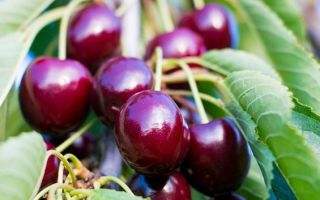Cherry is a tree whose fruit seeds were found during excavations of pile buildings of primitive people.
Description and composition
A large number of varieties are known, which are divided into two groups: with dark-colored fruits and colored juice and light-colored fruits and colorless juice. All varieties are equally useful.
Cherry fruits contain
- glucose - 3.84-5.24%,
- fructose,
- sucrose - 0.29-0.8%,
- vitamins C, E, B, PP,
- carotene,
- macro- and microelements,
- acids - malic, citric, formic, lactic, succinic, folic,
- coumarins,
- pectins,
- salicylates,
- almond flavored oil,
- nitrogenous and tannins.
In the old days, it was believed that cherries “cleansed” the blood. Research has confirmed this property and a number of others, such as:
- anti-inflammatory,
- antipyretic,
- mild laxative,
- hematopoietic,
- antiseptic,
- cleansing,
- soothing,
- restorative,
- diuretic,
- choleretic,
- expectorant.
A decoction of cherry stalks is a good diuretic.
It is prepared like this: a teaspoon of dried and crushed stalks is boiled in a glass of water for 15 minutes, and filtered after cooling.
Use one tablespoon 3-4 times a day.
Contraindications
Cherry fruits can be harmful to health due to the following diseases:
- increased stomach acidity,
- peptic ulcer of the stomach and duodenum,
- gastritis,
- colitis,
- enteritis,
- with a tendency to diarrhea,
- with chronic inflammatory processes in the lungs,
- bones can cause poisoning.







